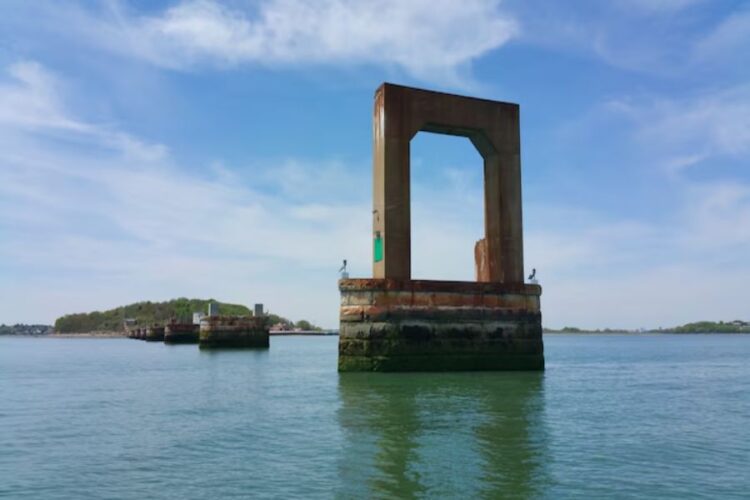International waters—those areas of the ocean beyond the territorial jurisdiction of any single country—often bring up fascinating legal, ethical, and geopolitical questions. When no single nation holds authority, who enforces the law? What happens when a crime takes place on a ship floating miles from the nearest shore? The sea’s legal gray zones don’t just affect pirates and smugglers. These issues impact cruise passengers, global shipping giants, and even environmental activists. To navigate this, international law outlines complex frameworks, treaties, and maritime norms. Let’s explore how the law works where borders don’t: in the no man’s sea.
Defining International Waters
International waters, also known as the high seas, refer to the parts of the ocean that lie beyond the 12-nautical-mile territorial waters of any country. Nations cannot extend their sovereignty over these areas, making them open to all states for navigation, fishing, and other lawful uses. Despite this openness, they’re not a lawless void. Instead, international conventions, primarily the United Nations Convention on the Law of the Sea (UNCLOS), govern them. UNCLOS creates a legal framework that outlines responsibilities and rights on the high seas. Still, enforcing those laws proves difficult, especially without a state’s direct jurisdiction.
Who Has Authority Over Ships at Sea?
On the high seas, a ship remains under the jurisdiction of the country whose flag it flies. This concept, known as “flag state jurisdiction,” gives countries the legal authority to regulate their vessels anywhere in the world. Whether it’s a cargo ship from Panama or a cruise liner registered in the Bahamas, the laws of the flag state apply. That means if a crime occurs, the flag state handles investigation and prosecution. It’s here that admiralty law plays a major role, ensuring disputes, violations, or accidents involving ships follow a legal route consistent with international maritime principles.
Piracy and Criminal Acts in Open Waters
Piracy remains one of the most enduring threats on the high seas, and it raises urgent legal dilemmas. If a pirate hijacks a ship in international waters, who can take action? International law gives all nations the right to combat piracy, under the principle of “universal jurisdiction.” That means any country can apprehend, prosecute, and sentence pirates, regardless of their nationality. However, applying this law often depends on diplomatic cooperation and available resources. Modern piracy cases—especially off the Horn of Africa or in the Strait of Malacca—show how collaboration between navies and legal systems can be both effective and limited.
Environmental Responsibility Beyond Borders
Pollution and environmental crimes on the high seas are global concerns. Ships dumping oil, releasing untreated sewage, or engaging in illegal fishing contribute to the ocean’s deterioration. Yet, no single authority exists to monitor every vessel. That’s where international agreements like MARPOL (International Convention for the Prevention of Pollution from Ships) come into play. These treaties require signatory nations to enforce pollution control standards on their flagged vessels. But enforcement gaps persist. Without regular inspections or strong legal consequences, many ships evade responsibility. As environmental awareness grows, so does the call for tighter regulations and better mechanisms for accountability.
Cruise Ships and Civil Offenses
What happens if a theft, assault, or even a suspicious death occurs aboard a cruise ship in the middle of the Atlantic? Legally, the situation falls under the flag state’s jurisdiction. That can be confusing for passengers, especially when the flag state has lenient or inconsistent laws. Cruise lines often register in countries like Panama or Liberia to benefit from lax labor and safety regulations. This practice, known as “flags of convenience,” complicates legal remedies for victims. Some governments, like the United States, assert jurisdiction when their citizens are involved. But navigating justice at sea often proves time-consuming and complex.
The Role of International Treaties
International treaties shape much of the legal landscape in international waters. The cornerstone agreement is UNCLOS, adopted in 1982, which sets out nations’ rights and responsibilities over their coastal and extended maritime zones. It also defines key legal concepts like exclusive economic zones (EEZs), continental shelves, and the high seas. Other agreements—like the SUA Convention (Suppression of Unlawful Acts Against the Safety of Maritime Navigation)—address terrorism and unlawful interference at sea. These treaties rely on signatories to honor their commitments and incorporate the rules into domestic law. Although many countries comply, enforcement remains uneven due to varying legal systems and priorities.
Submarine Cables and Seafloor Resources
The ocean floor in international waters holds more than coral and shipwrecks. It supports over 1.4 million kilometers of submarine cables that carry global internet and communication traffic. These cables fall under protections outlined in UNCLOS, which prohibits interference with their operation. The seabed also contains valuable minerals like cobalt, manganese, and rare earth elements. The International Seabed Authority (ISA) governs exploration and mining in areas beyond national jurisdictions. It issues licenses and enforces environmental standards, but critics argue that current regulations lag behind the pace of technology and commercial interests. The legal battles over these deep-sea resources will likely intensify.
Maritime Rescue and Humanitarian Obligations
Search and rescue operations on the high seas follow long-established customs and international law. Ships have an obligation to assist anyone in distress, regardless of their nationality or status. This duty extends to rescuing migrants, refugees, and shipwrecked sailors. SOLAS (Safety of Life at Sea) and the SAR Convention (International Convention on Maritime Search and Rescue) codify these principles. However, complications arise when politics intersect with rescue efforts—especially in the Mediterranean, where migrants risk their lives to reach Europe. Some countries refuse to allow disembarkation, placing ship crews in legal limbo and forcing them to navigate both ethical and legal hazards.
International waters challenge traditional notions of law and sovereignty. They operate on a delicate balance of treaties, national laws, and customary practices. Although frameworks like UNCLOS and admiralty law offer structure, enforcement depends heavily on each country’s commitment and capability. From piracy to pollution, the legal questions surrounding the high seas won’t disappear anytime soon. As global reliance on oceans continues—through trade, travel, and technology—the pressure to strengthen maritime law grows. The sea may belong to no one, but ensuring justice and accountability within it remains everyone’s responsibility. Navigating this legal frontier calls for clarity, cooperation, and unwavering resolve.










